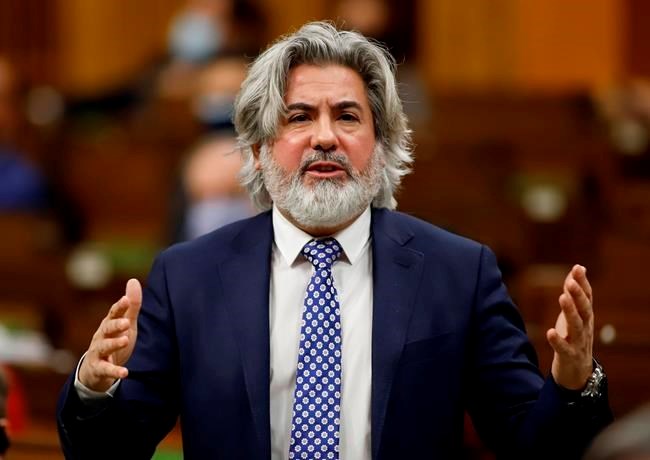OTTAWA — Heritage Minister Pablo Rodriguez is pressing ahead with plans for a law to make digital giants pay Canadian outlets for using their content, not just to shore up the media but to counteract fake news.Â
Speaking at a virtual conference on the future of news on Wednesday, Rodriguez said a new law the government is preparing will help preserve saąúĽĘ´«Ă˝'s independent media, which he said is starved of advertising revenue and "in crisis."Â
The online news bill will create a framework for news outlets to collectively negotiate fair deals with online platforms such as Google to compensate them for using their content.Â
The heritage minister argued action is needed because "the news sector in saąúĽĘ´«Ă˝ is in crisis. And this contributes to decay in our society."Â
Since 2008, 451 Canadian news outlets have closed, 64 of them since the start of the pandemic, he said.
"In 2020, online advertising revenues in saąúĽĘ´«Ă˝ were close to $10 billion dollars, with two dominant digital platforms taking over 80 per cent of those revenues. That’s an incredible chunk of power in the market," Rodriguez said.
The minister warned that the internet, though a popular source of news, had allowed more "mis- and disinformation" than ever before. The protests in Ottawa and across saąúĽĘ´«Ă˝ over the past few weeks have provided compelling examples of fake news online, he said.Â
Rodriguez said a vibrant, professional and non-partisan media where journalists ask difficult questions — which could prove uncomfortable for politicians — is vital to a thriving democracy.Â
He said a law recently introduced in Australia to level the playing field between tech corporations and media outlets is working and saąúĽĘ´«Ă˝ plans to use it as a model, with a few changes. He said the bill, to be introduced soon, will keep the government at "arms length" and the process transparent.Â
saąúĽĘ´«Ă˝ would have a regulator and impose arbitration if a fair deal cannot be struck between Canadian media and the likes of Google and Meta, formerly known as Facebook.
Rodriguez said the digital giants did not want a law, though Google's vice-president of news Richard Gingras said the search engine is not opposed to regulation.
Gingras told the conference Google is willing to "step up and do our part." But he said it was important to "protect the open internet" and the principle of free linking between sites.Â
He said Google sent traffic to news sites worth around half a billion dollars a year.Â
He criticized Australia's law, saying its arbitration model was unbalanced and unpredictable and he hoped saąúĽĘ´«Ă˝ would come up with a more workable blueprint.
Gingras, who has been in talks with the government about their plans, raised the prospect of a fund digital giants could pay into to support saąúĽĘ´«Ă˝'s media, based on a formula.Â
John Boynton, vice-chair of NordStar Capital which owns the Toronto Star and dozens of other daily and weekly papers, said the Australian law had led to a huge injection of cash into the media.Â
Not only has Australia's media stopped laying off journalists but now has funds to start hiring them again, he said.
This report by The Canadian Press was first published Feb. 23, 2022.Â
—â¶Ä”â¶Ä”
Facebook funds a fellowship that supports journalism positions at The Canadian Press.
Torstar holds an investment in The Canadian Press as part of a joint agreement with subsidiaries of the Globe and Mail and Montreal's La Presse.
Marie Woolf, The Canadian Press


